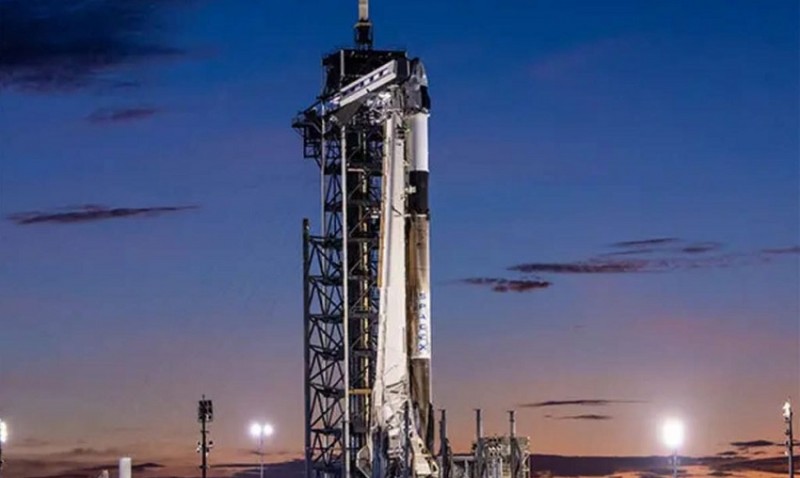
The groundbreaking Polaris Dawn mission, led by Elon Musk's SpaceX, has been delayed yet again. Originally set to launch on August 27 from NASA's Kennedy Space Center, the mission to send four civilians on a historic spacewalk has encountered further setbacks.
The delay was first attributed to a helium leak discovered at the launch pad. The rescheduled date of August 28 was subsequently pushed back due to unfavorable weather conditions predicted for the splashdown area off Florida's coast, where the crew capsule is expected to land after the mission.
SpaceX updated the situation on social media, stating, "Due to poor weather forecasts in Dragon's splashdown zones off Florida, we are standing down from tonight's and tomorrow's Falcon 9 launch opportunities for Polaris Dawn."
The company is closely monitoring weather conditions to ensure safe launch and return operations.
Jared Isaacman, the mission commander and a prominent entrepreneur, explained the situation on social media, saying, "Our launch criteria are strict due to the forecasted splashdown weather. Without an ISS rendezvous and with limited life support, we need to be certain of reentry weather before proceeding. Conditions are not favorable at the moment, so we'll reassess daily. As Elon Musk noted, Polaris Dawn is a challenging mission with critical goals, and we are prepared to wait for the ideal launch window."
The initial delay was due to a helium leak affecting the booster’s umbilical system, which delivers helium to propel the rocket’s engines. The launch was first postponed to August 28, but now further delays are anticipated.
Isaacman, along with former F-16 pilot Scott Poteet and SpaceX engineers Anna Menon and Sarah Gillis, will pilot the mission aboard a SpaceX Crew Dragon capsule. The Polaris Dawn mission will last approximately five days, reaching an orbit as high as 870 miles (1,400 kilometers) above Earth, surpassing the altitude of any manned mission since Apollo 17 in 1972.
On the third day of the mission, the crew will perform a spacewalk at about 435 miles (700 kilometers) above Earth, spending up to 20 minutes exposed to space. They will use new Extra-Vehicular Activity (EVA) suits developed by SpaceX over the past two and a half years.
The Polaris Dawn mission is the first of three planned under the Polaris Program, a human-spaceflight initiative funded by Isaacman in collaboration with Elon Musk. Isaacman previously financed and commanded the Inspiration4 mission, SpaceX's first all-civilian commercial flight to orbit.
SpaceX Polaris Dawn Mission What To Know About SpaceX Launch and its Crew
SpaceX Resets for Polaris Dawn Launch Today: Record-Setting Commercial Spacewalk Mission
Space Travel: NASA's Tough Call on How to Return Sunita Williams and Butch Wilmore